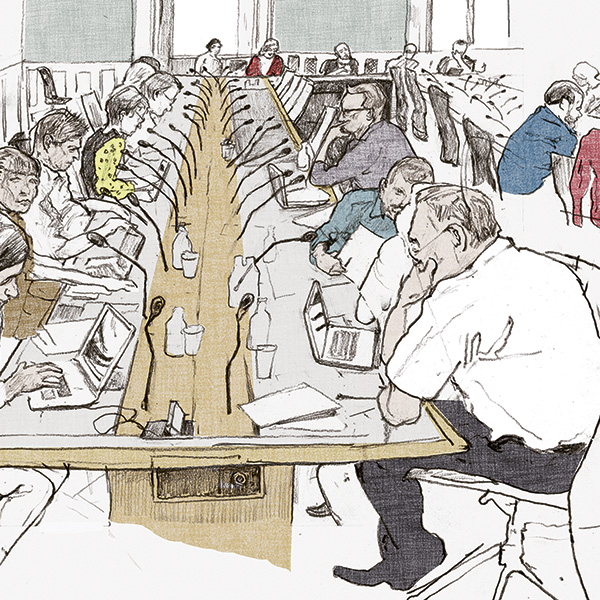Standpoint
“Sometimes it seems that whatever you do, it’s never enough”
Under pressure to get funding, to publish, to be at the top of their game – a survey is currently analysing the mental health of European researchers. The epidemiologist Irina Guseva Canu tells Horizons why this is an urgent task.

Irina Guseva Canu is an epidemiologist at the University of Lausanne and is researching into health at the workplace. | Image: zVg
The ‘Staircase’ survey on mental health is currently running and is due to be completed by March 2024. It hopes to elicit a response from a total of 50,000 people involved in research – PhD students, professors and non-academic staff alike. The occupational epidemiologist Irina Guseva Canu from the University of Lausanne has been placed in charge of getting the Swiss academic community on board.
Irina Guseva Canu, what’s the goal of Staircase?
We already have data from surveys conducted in the UK, Belgium and Australia. They show that researchers are becoming more and more pessimistic. The primary reasons are workload, a lack of a work-life balance, and the job insecurity caused by temporary contracts. Discussions about this phenomenon began several years ago already. This new survey will be the broadest conducted so far. It aims to let us compare results between different countries, different levels in the academic hierarchy, and different disciplines. Its ultimate goal is to change the system.
How does a job in academia differ from one in other fields?
For one thing, Switzerland is extremely competitive when it comes to obtaining funding and being the first to publish. Then there’s the heavy workload. Leisure activities are also promoted at the same time, in order for people to develop greater resilience. But how can anyone engage in leisure activities when they have to work ever harder for their money? From the UK, we hear that the pressure there has only increased since it left the European Union.
How have people in Switzerland reacted to the survey?
We are getting very positive feedback from our target groups, like the associations for PhD students and mid-level staff. They are giving us their full support. I even received an invitation from the student association of the University of Lausanne to participate in a panel discussion about mental health. So the survey is also inspiring other initiatives.
So the time is ripe for it?
I have to qualify that a bit. The feedback from the top has been less encouraging. We are still struggling to find the best way to convince superordinate institutions to disseminate the survey, for example, by way of the rectorates of the universities.
Why is this?
One reason might be that German-speaking Switzerland tends to be dominated by a culture that expects people to be resilient. Psychological disorders are stigmatised more there than in other regions. I was able to demonstrate this after a recent nationwide study on burnout. We see the same phenomenon in academia: The general belief is that a professor in his 50s should be mentally fit. It’s considered unacceptable for him to feel empty. This might be different in the younger generation.
Have you experienced any such difficulties personally?
I have a strong character. And I know how to prevent burnout. But I also struggle when we put a lot of energy into a project that isn’t then approved for funding. And I feel the increasing financial pressure: No money, no PhD students, no research, no publications. Sometimes it seems that whatever you do, it’s never enough. But being a researcher is also the best job in the world. We are surrounded by people who want to learn. And I myself learn something new every day.




